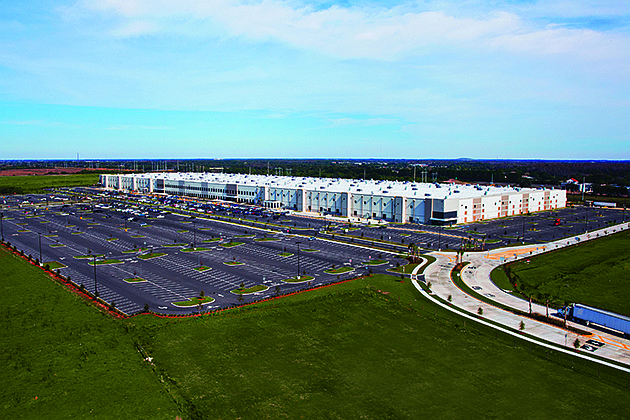- December 13, 2025
-
-
Loading

Loading

The Tampa area took a major step forward to becoming a first-tier investment haven for major institutional commercial real estate owners late last month, when a Phoenix-based real estate investment trust acquired Amazon.com Inc.'s distribution center in southern Hillsborough County.
The $103.6 million purchase by Cole Office & Industrial REIT (CCIT II) Inc. -- a record for a single industrial asset sale in the Tampa market — also will likely spur further interest in top-quality industrial properties, analysts say.
“Anytime an institutional buyer spends $100 million for a single asset in a market, it's seen as a vote of confidence in the whole area,” says Mike Davis, the Cushman & Wakefield executive director who together with Rick Brugge and Michael Lerner represented seller USAA Real Estate Co. in the deal for the 3350 Laurel Ridge Ave. property, in Ruskin.